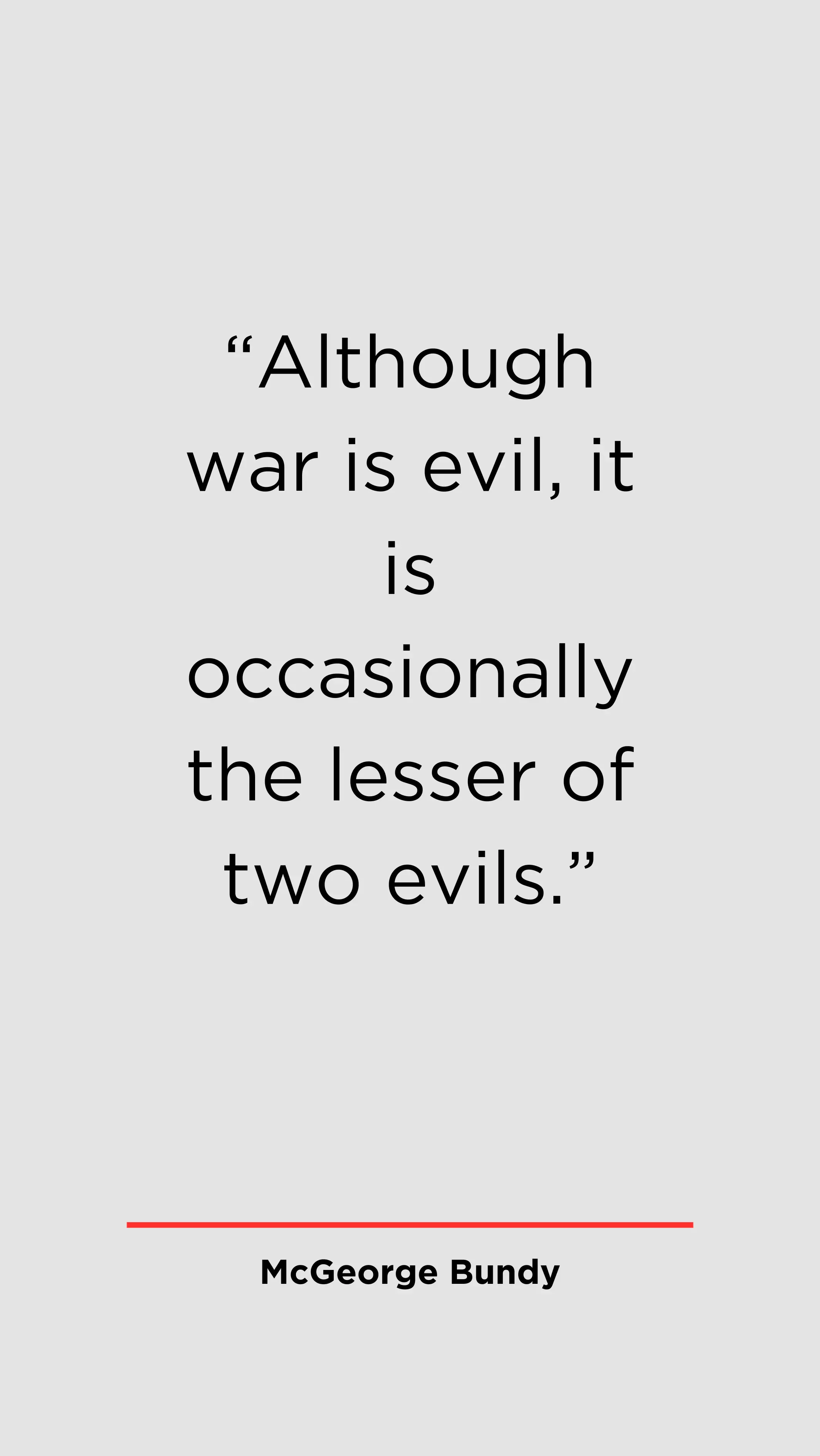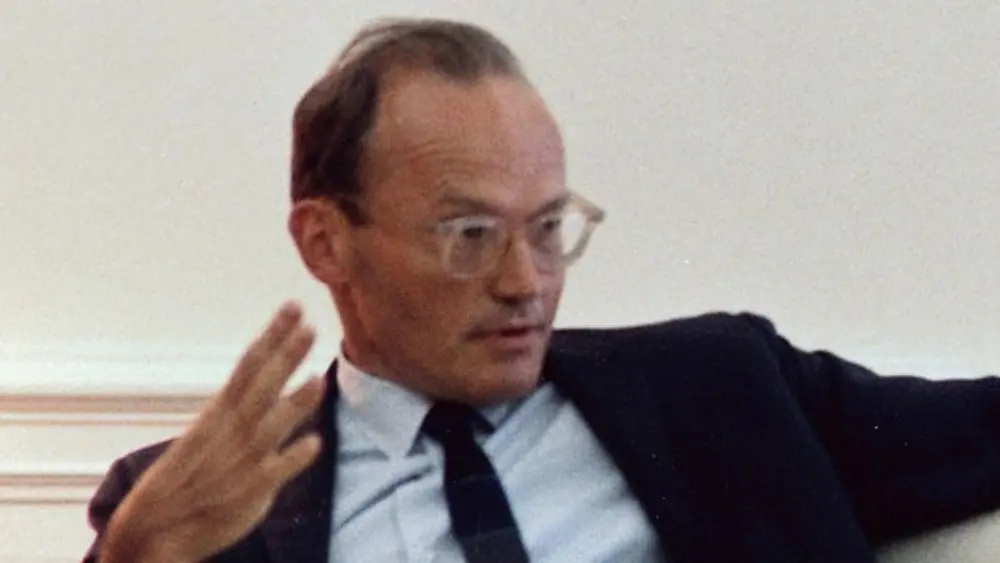McGeorge Bundy, a prominent figure in American foreign policy, served as the National Security Advisor to Presidents John F. Kennedy and Lyndon B. Johnson during a critical period of the Cold War. Born on March 30, 1919, in Boston, Massachusetts, Bundy’s life was marked by his dedication to national security and his influential role in shaping U.S. foreign policy during the Vietnam War era.
Early Life and Education
McGeorge Bundy’s early life and education laid the foundation for his distinguished career in public service and academia. He was born into a family of notable achievements and intellectual accomplishments, providing him with a strong intellectual and moral upbringing. His education commenced at the prestigious Groton School, known for its rigorous academic standards and character development. It was during his formative years at Groton that Bundy’s intellectual curiosity and commitment to public service began to flourish. This early exposure to an environment of academic excellence and moral values helped shape his future endeavors.
Bundy’s educational journey continued at Yale University, where he graduated and further honed his intellectual prowess. Yale provided him with the tools and knowledge necessary to excel in the realms of government and public policy. His time at the university fostered a deep commitment to public service and a strong sense of duty to contribute to the betterment of society.
McGeorge Bundy: World War II and Early Career
McGeorge Bundy’s early career was significantly shaped by his experiences during World War II and his subsequent path in academia and foreign policy. Serving in the U.S. Army during the war, Bundy gained invaluable insights into matters of national security and international diplomacy. His wartime experiences provided a real-world education in the complexities of global politics and conflict, which would later inform his views and approach to foreign policy.
After the war, Bundy transitioned into the world of academia and foreign policy analysis. He became a member of the Council on Foreign Relations, a prestigious organization dedicated to fostering a deeper understanding of international relations. Here, he delved into the intricacies of global politics, and his intellectual prowess and strategic thinking were highly regarded. This period marked the beginning of Bundy’s influential career in foreign policy and public service, as he leveraged his academic background and wartime experiences to contribute significantly to U.S. foreign policy during a pivotal period in history.
National Security Advisor to President Kennedy
In 1961, McGeorge Bundy assumed the critical role of National Security Advisor to President John F. Kennedy, marking a pivotal moment in his career and U.S. foreign policy. As the National Security Advisor, Bundy became one of President Kennedy’s most trusted and influential advisors, playing a central role in shaping the administration’s responses to pressing national security and foreign policy challenges. His appointment came at a time when the world was grappling with the complexities of the Cold War, and Bundy’s expertise and strategic thinking were instrumental in guiding the United States through this uproar era.
In this high-stakes position, Bundy was responsible for providing President Kennedy with crucial insights, policy recommendations, and intelligence assessments. He navigated delicate diplomatic negotiations, crisis management, and the intricacies of international relations with skill and diligence. His contributions to the administration’s decision-making processes had a profound impact on U.S. foreign policy during the Kennedy years, making him a key figure in the development of strategies that would define America’s approach to the Cold War and other global challenges.
McGeorge Bundy: Cuban Missile Crisis
McGeorge Bundy’s tenure as National Security Advisor reached a zenith during the harrowing Cuban Missile Crisis of 1962, a defining moment of his career and a critical juncture in global history. As the United States and the Soviet Union teetered on the brink of nuclear confrontation, Bundy’s counsel to President John F. Kennedy played a pivotal role in managing the crisis. His strategic insights and calm, measured approach helped guide the administration’s response to the discovery of Soviet nuclear missiles in Cuba, which posed a direct threat to American national security.
Bundy’s role in advising Kennedy during the Cuban Missile Crisis exemplified his exceptional leadership under extreme pressure. His ability to provide well-reasoned and timely recommendations allowed the United States to navigate this perilous standoff without resorting to military conflict. The crisis was ultimately resolved through diplomatic negotiations, and Bundy’s contributions to this peaceful resolution solidified his reputation as a shrewd and reliable advisor on matters of national security and foreign policy, leaving an enduring legacy in U.S. history.
Vietnam War
McGeorge Bundy’s tenure as National Security Advisor was also marked by his involvement in the Vietnam War, a conflict that would define an era and become a source of significant controversy. Bundy faced mounting criticism and scrutiny for his role in recommending the escalation of American involvement in Vietnam. His counsel played a key role in the decision-making process that led to the deployment of more U.S. troops and resources to the war effort. However, as the conflict escalated and its human and financial costs mounted, Bundy’s recommendations drew increasing criticism from those who questioned the wisdom and sustainability of the American presence in Vietnam.
The Vietnam War remains one of the most divisive and contentious episodes in American history, and Bundy’s association with the war policy left a lasting impact on his legacy. While he believed in the strategic importance of the United States’ commitment to Vietnam, his role in advocating for an expanded U.S. military presence in the face of mounting challenges contributed to the growing disillusionment and anti-war sentiment that characterized the era. Bundy’s involvement in the Vietnam War serves as a reminder of the complexities and controversies surrounding foreign policy decisions and their enduring consequences.
McGeorge Bundy: Transition to President Johnson’s Administration
Following the tragic assassination of President John F. Kennedy, McGeorge Bundy’s pivotal role as National Security Advisor transitioned seamlessly into President Lyndon B. Johnson’s administration, where he faced a daunting array of national and international challenges. Bundy’s continued service in the Johnson administration was marked by his ongoing involvement in the Vietnam War, a conflict that continued to escalate and dominate U.S. foreign policy considerations. He grappled with the complexities of a deeply divisive war, providing counsel to President Johnson as the conflict extended into a chaotic and uncertain period in American history.
In addition to the Vietnam War, Bundy’s tenure under President Johnson was characterized by the civil rights movement, a transformative and deeply contentious period in American domestic politics. As a key advisor to the president, Bundy played a role in shaping the administration’s approach to civil rights issues and navigating the turbulent waters of racial integration. His experiences during this era illustrated the multifaceted nature of his role as National Security Advisor, as he engaged in both domestic and foreign policy matters that would profoundly impact the course of American history during a time of immense social and political change.
Resignation and Later Career
In 1966, McGeorge Bundy made the decision to step down from his role as National Security Advisor, marking the conclusion of his influential career in government service. His resignation came during a turbulent period characterized by the Vietnam War’s intensification and mounting opposition to U.S. involvement in the conflict. Many saw Bundy’s departure as an acknowledgment of the increasing challenges and criticism surrounding the war policy. Following his resignation, Bundy transitioned into the academic world, where he continued to make significant contributions to the field of foreign policy and international relations. His insights and expertise remained highly regarded, and he played a vital role in shaping policy discussions and influencing the next generation of policymakers.
In his post-government career, Bundy’s commitment to public service and intellectual rigor persisted. He became a respected figure in academia, serving as a professor and contributing to scholarly debates on foreign policy and national security. His multifaceted career exemplified a dedication to the pursuit of knowledge and a commitment to improving the nation’s understanding of complex global challenges.

McGeorge Bundy: Legacy and Impact
McGeorge Bundy’s legacy in American history is complex. As National Security Advisor to Kennedy and Johnson, he influenced critical decisions in a turbulent era, notably during the Cuban Missile Crisis and Vietnam War. His counsel aided the resolution of the former but remains divisive for the latter. Bundy’s Vietnam recommendations face ongoing scrutiny. Yet, his dedication to public service and impact on U.S. foreign policy are still being studied, showcasing the challenges he tackled during his tenure as National Security Advisor.
Bundy’s impact extended beyond his government service as he transitioned into academia, where he continued to contribute to policy discussions and educate future generations of policymakers. His work as an educator and scholar ensured that his insights and expertise would endure, offering valuable lessons for understanding the complexities of global politics and the importance of informed decision-making in the realm of national security. McGeorge Bundy’s legacy remains a subject of ongoing debate, serving as a testament to the enduring influence of those who have grappled with the weighty responsibilities of shaping American foreign policy during critical moments in history.











